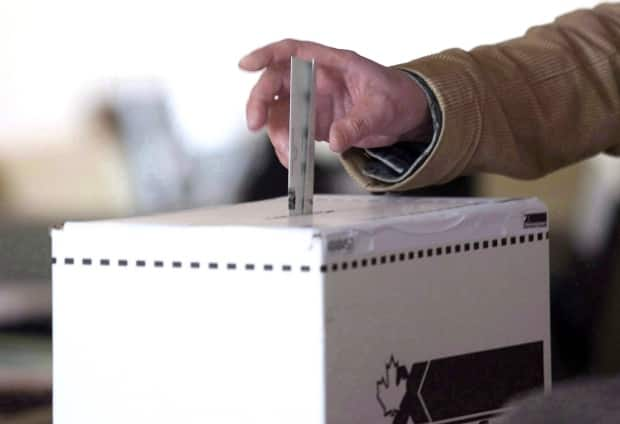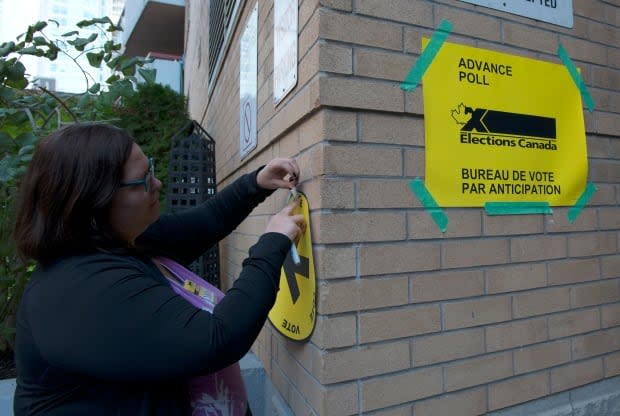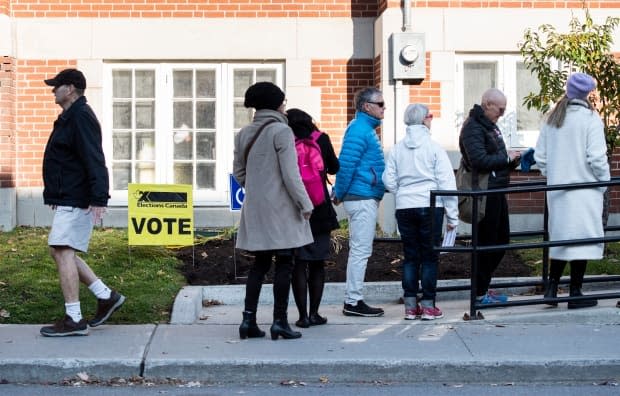All the ways you can vote in the 2021 federal election

If you're a Canadian citizen who is 18 or older and ready to participate in democracy — once you make sure you're registered — you'll have just about everything you need to vote in the federal election. But how you choose to cast your ballot is up to you.
Here are all the different ways to make your voice heard on Sept. 20 in the 2021 federal election.
At an advance polling station
So you want to get a jump-start on the election, you know who you want to vote for and you're looking to beat the rush of election day. There are a number of ways to do that.
One would be to go to an advance polling station. For a Sept. 20 election, advance polls will be open from Sept. 10-13. You'll find the address and times advance polling stations open near you on your voter information card, online or by checking with Elections Canada.

At your riding's Elections Canada office
If you don't want to wait until 10 days before the election, you can vote even earlier at an Elections Canada office (every riding has one), until Sept. 14. You will just need to complete a special ballot application, which you can get online or at your local Elections Canada office.
It's worth noting that once your application has been accepted, this is the only way you can cast your vote. If you try to vote on election day or at an advance poll, your vote won't be counted.
On election day
Why complicate things? Maybe you're looking forward to going to the polls on election day and feeling the buzz of democracy in action. You can register to vote ahead of time or at your polling station when you go to vote.
You'll want to make sure you bring proof of your identity and address, which can be a driver's license or any other card that's been issued by a federal, provincial, or local Canadian government with your photo, name and current address on it. You may also use two pieces of these approved forms of identification.
If you don't have any ID, you can get someone to vouch for you. But they must be able to prove their own identity and address and be a registered elector at the same polling station as the person being vouched for.

Voting by mail
If you don't plan on making it to an advance polling station, an Elections Canada office or to the polls on election day, mail-in voting may be the way to go.
If you live outside of Canada, you can apply any time to vote by mail in future elections. To be added to the International Register of Electors you still must be a Canadian citizen and at least 18 years or older on polling day. However, you must also be living outside of Canada and have lived in Canada at some other point in your life.
Maybe you live in Canada, but just want to vote in the comfort of your own home. That's no problem, you can mail-in a ballot. Just like voting at an Elections Canada office, you will have to complete a special ballot application. This also applies to students who might be living on campus and away from home.
Once your application is accepted, you will be mailed a special ballot voting kit. Follow the instructions and return your ballot using the pre-addressed return envelope provided. Just make sure your vote makes it to Elections Canada by election day at 6 p.m. ET, or it won't be counted.
If you're worried about your mail-in ballot being received on time, Elections Canada says those voting from within their riding have the option to drop their completed special ballot off at their assigned polling station, or at any other polling location in their riding, on election day.
If you have a question about the federal election, send us an email at ask@cbc.ca. We're answering as many as we can leading up to election day.

